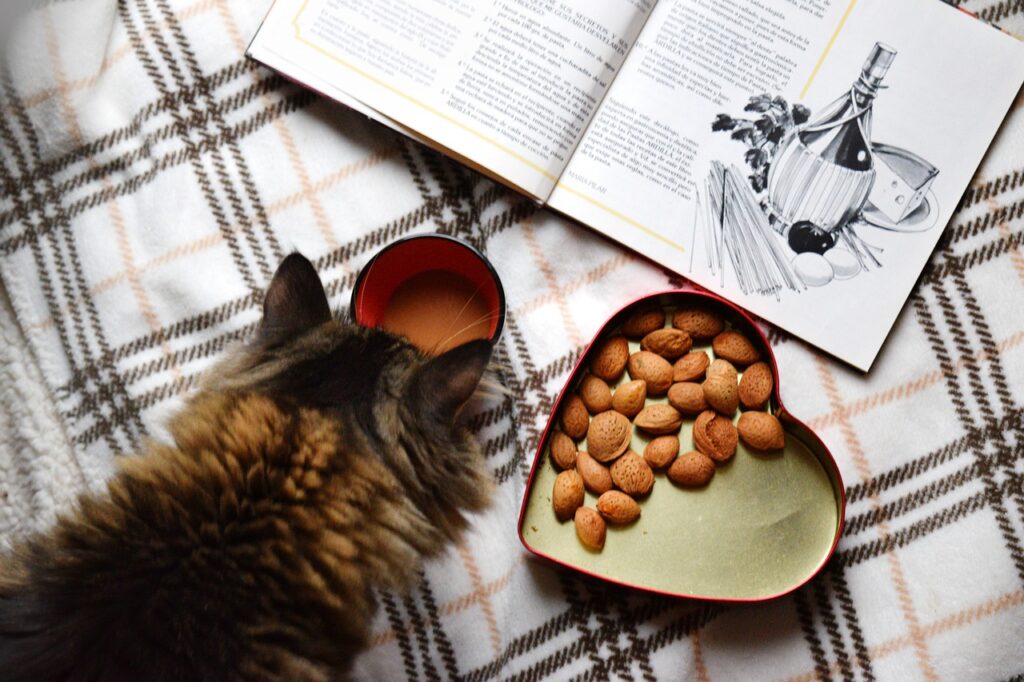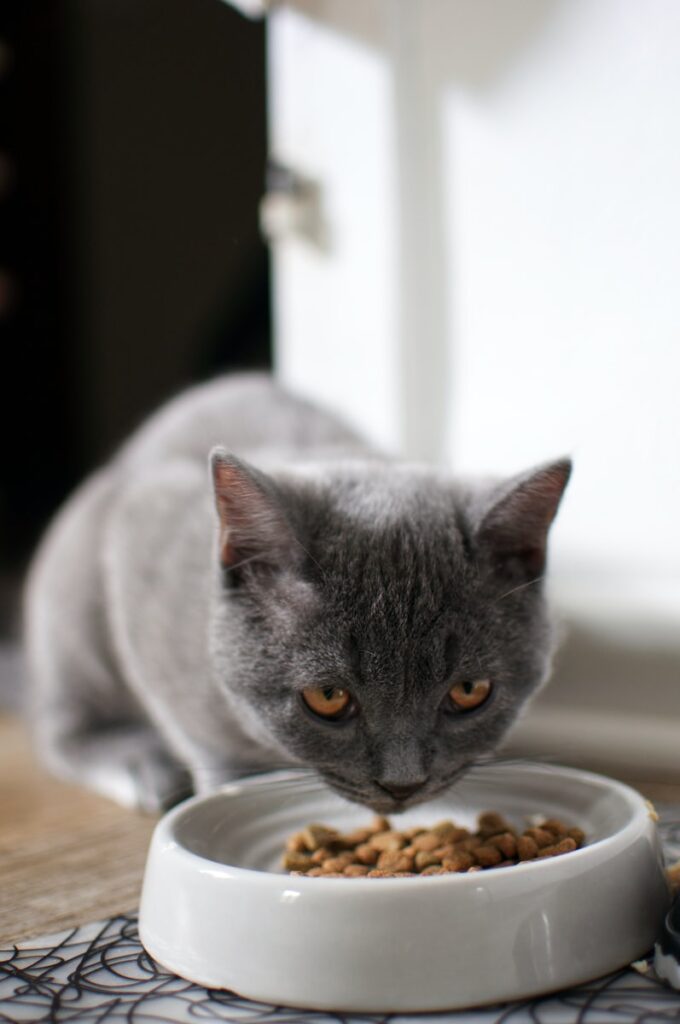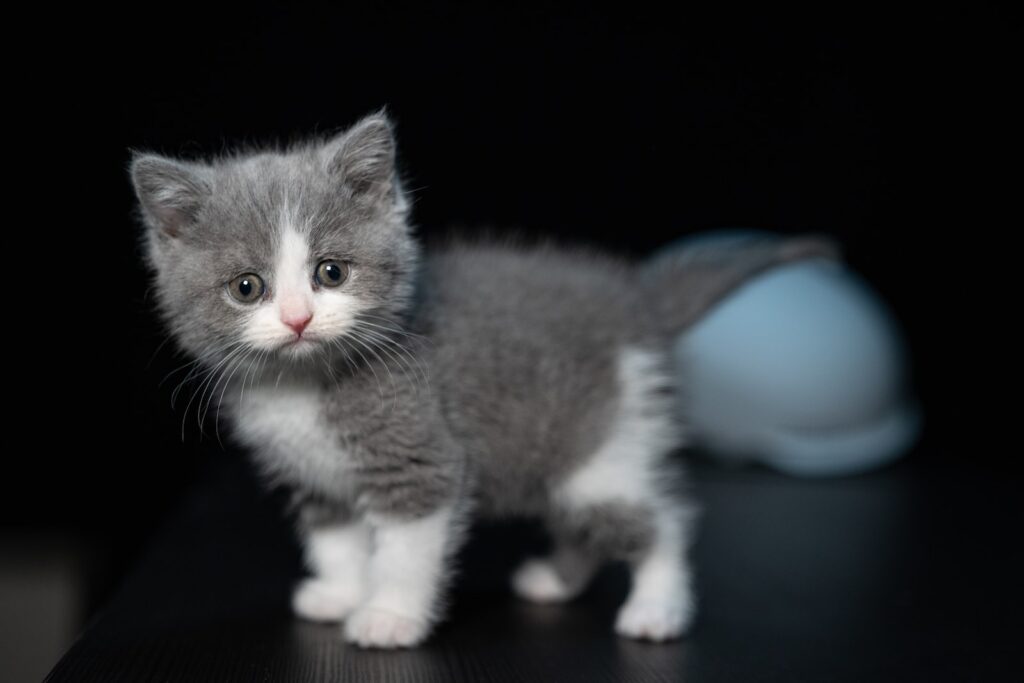Have you ever wondered how much to feed your kitten? Well, now you don’t have to worry!
In this article, we will tell you the average amount of food that a kitten should be eating each day, as well as how many times a day they should be fed.
By following these guidelines, you will be able to care for your kitten properly and ensure their growth and development is on track.
When to Feed a Kitten

When it comes to feeding a kitten, there is no one-size-fits-all answer.
The amount of food a kitten eats depends on its age, activity level, and body weight.
Kittens under six weeks old should be fed four times a day, while older kittens may only need three meals a day.
To figure out the correct amount of food for your kitten, divide its weight in half and add 1/3 to that figure. For example, if a kitten weighs two pounds, it would need about .75 cups of food per day.
How Much to Feed a Kitten
There is no one answer to this question as kittens’ appetites vary depending on their age, activity level and diet before they were spayed/neutered.
However, a general guideline for feeding a kitten is to give them 1/4 to 1/2 cup of food every two hours, with a total daily intake of about 3/4 cups.(1) Kittens will also drink water and should be given at least 16oz per day.
If your kitten is not eating or drinking enough, you may need to bring their food and water to them or provide a small litter box in addition to the food and water dish.
Make sure you take your kitten to the vet if they don’t seem to be gaining weight or if they are lethargic or losing fur. Feeding a kitten can be a bit of a challenge, but following these guidelines will help you care for them properly.
How to Tell if a Kitten Is Hungry

There is no one-size-fits-all answer to this question, as the amount of food a kitten needs will vary depending on its size, age, activity level, and metabolism.
However, some general guidelines that can help you determine when your kitten is likely hungry are as follows:
Kittens under 1 week old: A newborn kitten’s stomach is relatively small and it cannot digest a lot of food at once. Therefore, they typically require less food than older kittens. Feed them around 1/4 to 1/3 of their daily caloric requirement in a single feeding.
Kittens 1-6 weeks old: Kittens between 1 and 6 weeks old tend to be more active and their stomachs have begun to grow larger. As a result, they can handle eating more food at one time. Feed them around 3/4 of their daily caloric requirement in a single feeding.
Kittens 7-12 weeks old: Kittens 7-12 weeks old are generally full grown and are starting to bulk up. They can usually eat about half their daily caloric requirement in one sitting.
Kittens over 12 weeks old: Kittens over 12 weeks old may start to lose weight and need fewer feedings per day. In general, kittens should be fed four times a day, with an initial breakfast at around 8am and the final meal at around 6 pm.
How to Measure How Much to Feed a Kitten
It is important to feed your kitten the proper amount of food to maintain their health and weight. This can be a bit tricky to figure out, so here are some guidelines to help you.
First, weigh your kitten and record the weight in a journal. Next, multiply the recorded weight by 4 to get the approximate daily caloric requirement. Feed your kitten this amount every day, divided into two meals. Make sure that they are eating enough water as well.
If your kitten becomes overweight or obese, you may need to gradually reduce their caloric intake until they reach a healthy weight. The best way to do this is by measuring their weight periodically and adjusting their diet accordingly.
What to Do if a Kitten Won’t Eat its Food

If your kitten won’t eat its food, there are a few things you can do to get it to start eating again. First, try to find the cause of the lack of appetite. Is the kitten sick? Moody? Disappointed because you’re not providing enough attention?
Check out our article on the causes of a kitty’s lack of appetite for more information. If the cause is external, like being outside in bad weather or encountering another cat, try some comfort measures like providing a litter box inside or keeping a small toy or piece of meat nearby so the kitten can see and smell that all is not lost.
Once you’ve eliminated any possible external factors, it’s time to work on solving the problem of the kitten’s appetite. One common reason kittens won’t eat their food is that they’re not getting enough flavor. Try mixing their food with some water or broth (or even apple sauce) before feeding it to your cat.
Also make sure their food is fresh and has been cooked thoroughly – overcooked food can be bitter and unappetizing to a kitty. If all else fails and your kitten still won’t eat its food, you may need to consult with a veterinarian about possible dietary issues or refeeding
Conclusion
When it comes to caring for a kitten, there are a few things you need to keep in mind. The first is that kittens have a very high daily energy requirement (DER), which means they will require more food than an adult cat.
Secondly, because their stomachs are not as developed yet, kittens should only be given small amounts of food at one time rather than large chunks.
Finally, make sure that the food you give your kitten is high quality and has been specifically designed for cats.
